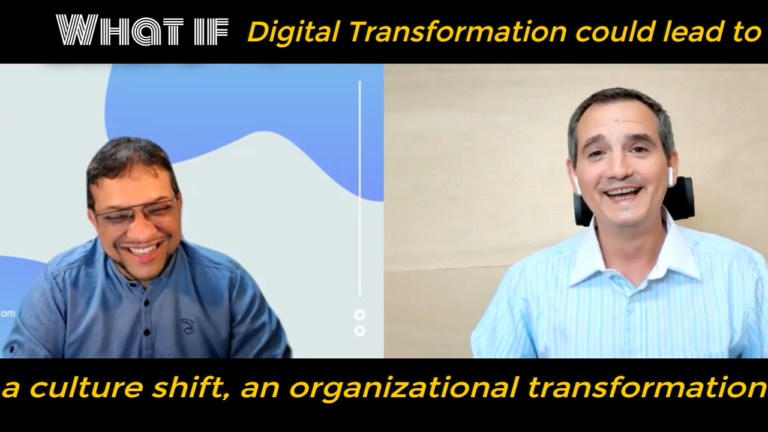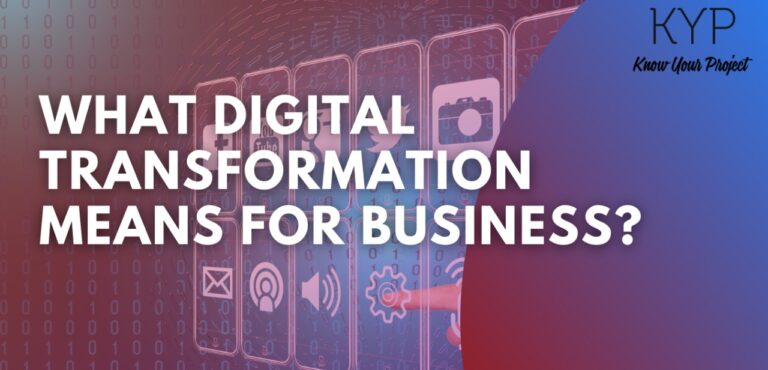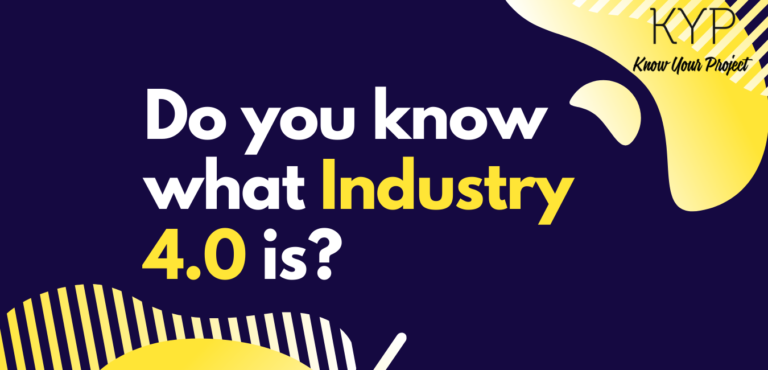We are closing our organization
After the brilliant response over the series of 5 critical factors of DX, we are here with another new eye-opening series called, “#DXRealityChecks.”, that would help organizations understanding digital transformation.
DXRealityChecks pt 1: Do you know you could be the next to hear this?
“We are shutting down” are the most painful words that a worker could hear…let’s suppose that a company named “A-Star” has suddenly released the bad news to all its employees and evaluate the reasons that led this company to a death-bed.”
If the problems of A-Star sound familiar to you, we got you covered!
The question that arises here is, why? What were the consequences that made the A-star bite the bullet? There could be various minor and major errors that were probably overlooked and resulted in a downfall of the organization. A situation where you invest so much of mainly everything, and you expect to make the most of it but everything crashes all of a sudden leaving behind no option but to shut down the company itself, such a situation can be gut-wrenching for the employees as well as the executive, undoubtedly.
Some horrific behind the scenes of A-star’s employee and its CEO:

To make sure that your company is not similar to A-star, and already prone to critical problems, let’s begin with the major cause of failure:
Understanding Digital Transformation Goals:
Traditional setups are good in the beginning but once the business takes off, leaders should unpick all the old practices for betterment and start investing in new technology. Moreover, the major step towards digital transformation is to set clear goals, adopt a strategy, and align them with the vision of your company. An important aspect to ensure the digital transformation is to brief your employees regarding the challenges the company is facing and how through collaboration these issues can be resolved.
To know why digital transformation is essential for an organization: click here.
Refusing to adopt new emerging technologies and environments:
Denying the acceptance of the “digital era” can be extremely alarming and create harsh consequences for the organization. Understandably, a major shift in the approach of your organization to implement a new idea can be intimidating. However, experimenting with innovative technology can promising and worth being patient through the digital process. Expanding the horizons of the organization and adopting digital platforms is essential in the modern era and the Covid-10 lockdown is a reminder of that.
Turning eyes from Customer Experience:
This step can call off your success and leads to zero business agility. When we say, “customer is always right,” we mean it. The value given to customers should be the topmost priority of an organization. As customers are the backbone of the organization, they must be included in the digital process to ensure a positive customer experience. Without understanding digital transformation from the clients prospective, no company can win the race.
Paying no attention to competitors:
An organization needs to conduct marketing research. They should be aware of who their competitors are, who their target audience is, and what marketing activities do they operate with. To give their competitor a challenge, they should monitor their websites and social media platforms to obtain information regarding their digital strategy. The effective tactic would be to introduce a better strategy to address their competition and attract more customers.
Expecting overnight success from Digital transformation:
Expecting the most from your company in its initial days isn’t appropriate since it takes time to begin from level one. Implementation of a lot of changes at once might result in further delays as it is difficult to keep track of all the changes simultaneously which often results in setbacks. Hence, as an organization, understanding the digital transformation process is of utmost importance and implement them step-by-step to ensure a smooth transformation.
Compromising on quality:
“Quality is never an accident; it is always the result of high intention, sincere efforts, intelligent direction, and skillful execution; it represents the wise choice of many alternatives.” This quote by William A. Foster simplifies the ideology of excellent quality and quantity. Leaders must take notes!
Lack of Expertise: One bad year does not mean the end!
The digital process requires an essential skill-set that may not be available in your organization to effectively deduce the problems, set goals, devise a relevant strategy to embark on the journey. To avoid mistakes and slow down the initiative, the organization needs to access its capabilities and not over-estimate its talents. Therefore, seeking advice from experts can be a crucial step in the process. Since an experienced consultant that guides your organization to pull exceptional yet high-grade revenues by highlighting the problematic areas is all that a struggling company needs. Let’s just not repeat the mistakes we did in past and move forward with fresh ears, eyes, and mindset.
Now when you know the issue; what is the best way to come back on the success path?
You might be wrong if you think that you are alone enough to resolve the issue, let us just unpick this myth for you. According to a survey it is found that the percentage of organizations involved in forms of digital initiatives is 90 percent which is hefty ratio, but the point to be noted is that among them only 40 percent have reached their goal or digital initiative. Therefore, you will be needing qualified consultants who can guide you to the leading path.
Leave the past in the past:
Now is the time that you should say goodbye to the old and traditional ways and warmly welcome the modern and digital tech because “The present represents the ‘new’ you!”
Cons of pursuing traditional techniques in organization:
- Such organizations become rigid and can only take significant steps annually.
- No sign of teamwork is found i.e., a person is to obey his superior and so on.
- Employee’s mindset remains limited and no productivity is generated.
- Less use of tech which means greater expenses on the buildings and other unwanted machines.
If leaving past still bothers you then…
Ask the following questions to yourself:
- Am I dealing with cross-examination due to delay of projects?
- If I request for some changes to the consulting team, will they demand of large price and other benefits?
- Is my team constantly becoming demotivated?
- Am I fulfilling the promises I made to the company?
- Am I ready to give up everything I have achieved?
Take up a quiz and let me help you identify the weak link.
Catch-up: Our imaginary company A-star is no more a “star” which is indeed painful. But we all need to agree that decision-makers who work “irrationally” eventually end up with empty desks and zero profits. Share your experiences with us in the comment section if have you ever worked in a company like A-star









One Comment
Comments are closed.